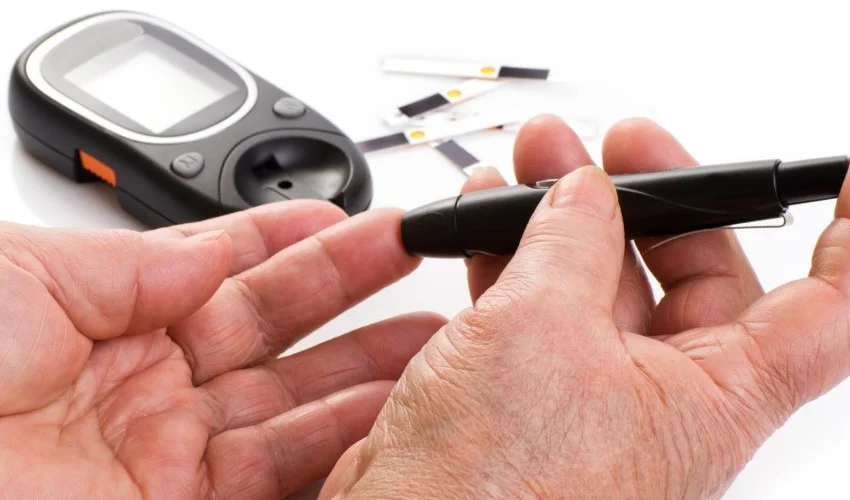Living with Type 2 diabetes can present numerous challenges, affecting one’s physical and emotional well-being. However, it’s essential to remember that diabetes management is within your control. This article focuses on empowering women with Type 2 diabetes by understanding the impact of lifestyle choices on their future health and providing actionable steps to take control of their condition. By adopting a proactive approach to managing diabetes, women can enhance their quality of life and reduce the risk of complications.
Understanding Type 2 Diabetes
Type 2 diabetes is a chronic metabolic disorder characterized by insulin resistance and inadequate insulin production by the pancreas. Insulin is crucial for regulating blood sugar levels, and when this process is impaired, it leads to elevated glucose levels in the bloodstream. The condition can be influenced by various factors, including genetics, lifestyle choices, and obesity.
The Prevalence of Type 2 Diabetes in Women
Diabetes affects millions of people worldwide, and the prevalence of Type 2 diabetes in women has been steadily rising. According to the International Diabetes Federation (IDF), over 200 million women were living with diabetes in 2021, and this number is projected to increase to 313 million by 2040. It is vital for women to be proactive in managing their diabetes to improve their long-term health outcomes.
Impact of Lifestyle Choices on Diabetes
Dietary Habits and Blood Sugar Control
Maintaining a healthy diet is crucial for managing Type 2 diabetes. Women should focus on consuming balanced meals that include a variety of nutrient-rich foods such as vegetables, fruits, whole grains, lean proteins, and healthy fats. Avoiding sugary and processed foods can help stabilize blood sugar levels and prevent sudden spikes and crashes.
One of the key principles of managing diabetes through diet is understanding the glycemic index (GI) of foods. The GI measures how quickly a particular food raises blood sugar levels. Foods with a high GI cause rapid spikes in blood sugar, while low-GI foods result in slower, more gradual increases. For example, whole grains, legumes, and non-starchy vegetables generally have a lower GI and are preferable choices for women with Type 2 diabetes.
Regular Physical Activity
Engaging in regular physical activity is essential for managing diabetes effectively. Exercise helps the body utilize insulin better, which can lead to improved blood sugar control. Women with diabetes should aim for at least 150 minutes of moderate-intensity aerobic activity per week, along with muscle-strengthening activities on two or more days per week.
Physical activity not only helps manage blood sugar levels but also has numerous other health benefits. It can contribute to weight management, improve cardiovascular health, boost mood, and reduce the risk of complications associated with diabetes. Women should find physical activities they enjoy to make exercise a sustainable part of their lifestyle.
Weight Management
Obesity is a significant risk factor for Type 2 diabetes. Women who are overweight or obese should work towards achieving a healthy weight through a combination of a balanced diet and regular exercise. Even modest weight loss can lead to significant improvements in diabetes management.
Losing weight can improve insulin sensitivity, making it easier for the body to use glucose effectively. It can also help reduce the amount of medication needed to manage diabetes. However, weight loss should be approached in a healthy and sustainable manner, focusing on long-term lifestyle changes rather than crash diets.
The Impact of Diabetes on Women’s Health
Reproductive Health
Diabetes can have unique effects on women’s reproductive health. Poorly controlled diabetes during pregnancy, known as gestational diabetes, can lead to complications for both the mother and the baby. Women with diabetes should work closely with their healthcare providers to manage their blood sugar levels before and during pregnancy to reduce the risk of complications.
Gestational diabetes can increase the risk of birth complications, such as macrosomia (large birth weight) and the need for cesarean delivery. It also raises the child’s risk of developing obesity and Type 2 diabetes later in life. Proper diabetes management before and during pregnancy can significantly improve outcomes for both the mother and the baby.
Heart Health
Diabetes significantly increases the risk of cardiovascular diseases. Women with diabetes have a higher likelihood of developing heart disease compared to men with diabetes. It is crucial for women to manage their blood pressure, cholesterol levels, and overall cardiovascular health through lifestyle changes and appropriate medications.
Regular medical check-ups and screenings are essential to monitor heart health and identify any risk factors early on. Women with diabetes should work with their healthcare providers to develop a personalized plan to reduce their cardiovascular risk, which may include medication, lifestyle modifications, and stress management.
Mental Health
Living with diabetes can be emotionally challenging, leading to stress, anxiety, and depression. Women should prioritize their mental well-being and seek support from healthcare professionals or support groups if needed. Proper emotional health management can positively impact diabetes self-care.
It’s essential to recognize that diabetes is not just a physical condition but also affects mental and emotional aspects of a woman’s life. Women should build a strong support network and communicate openly about their feelings and challenges. Engaging in stress-reduction techniques such as mindfulness, meditation, or counseling can help improve mental well-being.
Taking Control: Tips for Empowerment
Education and Knowledge
Knowledge is a powerful tool for diabetes management. Women should actively seek reliable information about diabetes, its treatment, and lifestyle choices. The Care4Sugar platform offers a plethora of educational resources, articles, and expert advice to support women in their journey with diabetes.
Understanding the nuances of diabetes management, such as carbohydrate counting, insulin dosing, and blood sugar monitoring, is crucial for making informed decisions. Women should also be aware of the potential signs of complications and know when to seek medical attention.
Regular Monitoring and Blood Sugar Testing
Frequent monitoring of blood sugar levels is essential for understanding how the body responds to different foods and activities. Women should work with their healthcare providers to establish a monitoring routine and make necessary adjustments to their treatment plan.
Blood sugar testing can reveal patterns and trends, helping women identify factors that affect their diabetes control. Keeping a log of blood sugar readings, meals, and physical activity can provide valuable insights for optimizing diabetes management.
Building a Support Network
Having a strong support network can significantly impact a woman’s ability to manage diabetes effectively. Connecting with other individuals living with diabetes through platforms like Care4Sugar can provide a sense of community, encouragement, and shared experiences.
Women should involve their family members, friends, and healthcare providers in their diabetes management journey. Supportive and understanding loved ones can provide encouragement during challenging times and help keep diabetes management on track.
Goal Setting and Tracking Progress
Setting achievable goals and tracking progress is essential for diabetes management. Women should work with their healthcare providers to establish realistic targets for blood sugar control, weight management, and physical activity. Regularly tracking progress can help identify areas of improvement and celebrate successes.
Breaking down larger goals into smaller, manageable steps can make diabetes management feel less overwhelming. Celebrating achievements, no matter how small, can provide motivation and reinforcement for continued efforts.
Empowering women with Type 2 diabetes involves understanding the impact of lifestyle choices on future health and taking proactive steps to manage the condition effectively. By adopting a balanced diet, engaging in regular physical activity, and managing other risk factors, women can enhance their quality of life and reduce the risk of complications associated with diabetes. The Care4Sugar platform offers comprehensive resources and support for women with Type 2 diabetes, providing them with the knowledge and tools they need to take control of their health and thrive with diabetes.




